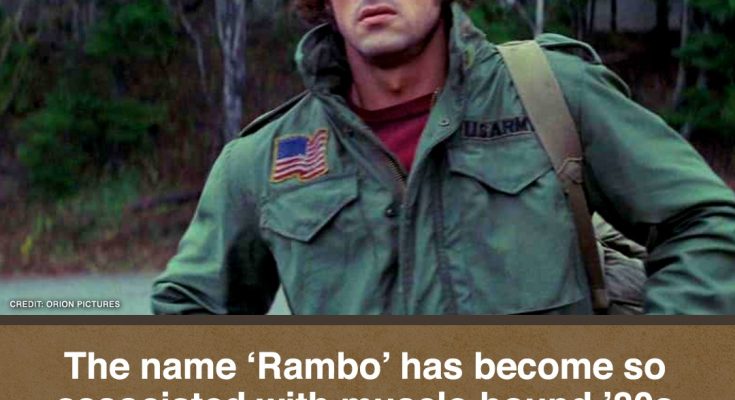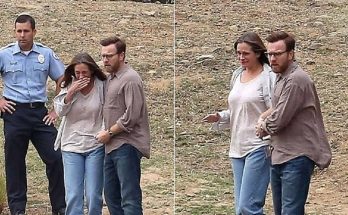Of the many war movies that exist, there is a subcategory that follows a soldier home, or wherever they may drift, in order to scrutinize what happens next. For the participants of warfare, the end of a war or active service doesn’t always represent a conclusion. These films often examine PTSD, survivor’s guilt, despondency, flashbacks, and disillusionment, among other things. Often, films about the aftermath of war revise the symbolism of the flag, governmental responsibility, morality, and community. Sometimes, a film with an antiwar stance can provide a veteran character with a reason to look ahead.
By turning the lens on the homecoming reception and the communities that celebrate heroic acts with fanfare but shun the political or personal pushback of the individual, this type of film can draw sharp contrasts between the mundanity of civilian life and the thrill of the battlefield. More often than not, the audience is asked to consider what exactly has been fought for – and if it was worth it.
‘First Blood’ Is A Violent Survival Story About A Vietnam Veteran

Photo: Orion Pictures
A former member of an elite group of soldiers, John Rambo is “a man who’s been trained to ignore pain.” After discovering that a friend and fellow soldier has succumbed to Agent Orange, Rambo is picked up by Sheriff Will Teasle in a small town in Washington. Teasle uses his smug, small-town authority to taunt the veteran drifter about his overall demeanor and the validity of his US Army jacket. Police brutality and flashbacks of his Vietnamese internment propel Rambo’s resistance and elaborate escape.
Throughout First Blood, comparatively ordinary fellow Americans cast doubt upon a man who put his life on the line for his country, a familiar scenario with the Vietnam War due to the era’s counterculture and wide generation gap. Rambo’s survival in the aftermath of war depends upon muscle memory, accumulated from extreme military training and wartime engagement. First Blood taps into the despair of no longer possessing military stature. In the final act, Rambo questions his own value by comparing his years in combat to his woeful post-war futility.
‘The Deer Hunter’ Depicts The Impact Of Vietnam On Small-Town Friends

Photo: Universal Pictures
Michael Cimino, true to his reputation, went vastly over-budget with this multiple-Oscar-winning film about a Pennsylvania steel town group of friends who go off to fight in the Vietnam War. Robert De Niro, Christopher Walken, Meryl Streep, and her real-life partner John Cazale in his final role (he succumbed to lung cancer in 1978) add extraordinary nuance in a film that deftly juxtaposes high tension extremes with the rich mundanity of ordinary life.
Of all the Russian roulette scenes on film, the one presented here with Mike (De Niro) and Nick’s (Walken) fate at the hands of their Viet Cong captors tops the list. Walken plays terror quite unlike any other actor. His performance reveals something of a person’s contempt for their own vulnerability in what they believe to be their final moments. The Deer Hunter stands out as one of the most memorable explorations of the destruction of a community due to the psychological war wounds of the individuals therein. The contrast between the film’s pre-war leisurely pursuits and subsequent suffering demonstrates the light and shade of shared experience.
‘The Best Years of Our Lives’ Shows How Service Rank Doesn’t Match With Civilian Life

Photo: RKO Radio Pictures
Topping many best movie lists and the winner of countless awards, 1946’s The Best Years of Our Lives tells the story of three WWII soldiers who meet in transit en route to the same Midwestern town. Back home, alcoholism, disfigurement, and PTSD stall their attempts at picking up where they left off.
Best Years pays meticulous attention to each stage of adjustment and failure in the lives of the main characters. Of note is the wives and girlfriends’ efforts to put their men back together again. For his performance as the hook-handed officer Homer Parrish, Harold Russell, who had never acted before and did indeed have artificial hands after losing his own in a demolition mishap, set a record by receiving two Academy Awards for the same performance – best supporting actor as well as an honorary award for his contribution to public morale at a time when thousands of veterans were trying to adapt to life back home. This highly compassionate film, notable for its realism, has stood the test of time. Due to the barely post-war timing of its production that couldn’t bestow the luxury of hindsight and reflection, The Best Years of Our Lives still holds up for its authenticity.
‘Johnny Got His Gun’ Shows A Severely Disabled Veteran Attempt To Communicate

Photo: Cinemation Industries
Boarding the train for the trenches of World War I amid much patriotic flag-waving, Joe Bonham (Timothy Bottoms) waves goodbye to his girl with a wilting gesture of two hesitant fingers held aloft, a parallel of the movie poster’s robust peace sign. Bonham emerges from a shell fire battle without limbs, facial features, or even ears to hear the powers that be rendering him obsolete.
Johnny Got His Gun was the only film that screenwriter Dalton Trumbo, one of the blacklisted Hollywood Ten, ever directed. Based on his novel of the same name, Trumbo’s antiwar position is unambiguous. The film’s use of satire and black humor has echoes of Dr. Strangelove in exposing the farcical nature of war. Trumbo also emphasizes the irony of Bonham’s captive condition: He’s removed from the battlefield, yet he remains a bureaucratic burden following the discovery that his brain is fully functioning. Trumbo’s film affords a hospital bedside view of a fallen pawn, no longer of any use to the nation that put him in the trenches.
‘American Sniper’ Puts The Focus On PTSD After Repeated Tours In Iraq

Photo: Warner Bros. Pictures
Based on Chis Kyle’s memoir, director Clint Eastwood’s most financially successful film tells the story of Kyle’s (Bradley Cooper) conflicting existence as a Navy SEAL clocking up a record kill count (over 150), and as a husband and father, who, with each tour in Iraq, loses more of his ability to connect with his family and civilian life.
American Sniper artfully conveys the deepening chasm of Kyle’s dual life. Unlike many other war aftermath movies, Kyle is back and forth between war and home. With each consecutive tour in Iraq, he is further desensitized to the act of killing. Kyle believes in his duty and his country, but the numbers game is chipping away at his humanity. American Sniper unveils a portrait of a broken man trapped by his own stealth, the mastery of which is integral to his marksman occupation.
‘Born on the Fourth of July’ Focuses On The Post-War Activism Of A Disabled Vet

Photo: Universal Pictures
The second of veteran Oliver Stone’s Vietnam trilogy is based on the autobiography of Ron Kovic (who co-wrote the screenplay with Stone), for whom enemy fire resulted in the paralysis of the lower half of his body. Oscar-nominated Tom Cruise plays Kovic with customary Cruise determination, from Kovic’s wartime baptism by fire and his discovery of rule-bending morality in the chain of military command, to the indignity of his physical impairment and his disillusionment with the US government.
Stone has an odd habit of taking real-life figures he admires and portraying them as the equivalent of a bottom-of-the-list party invite. Here, however, Cruise’s tenacious screen presence rises above irritability in his commitment to Kovic’s vocal opposition to the war. Kovic’s reasoning translates convincingly due to his gradual transformation from a patriotic enlister to an antiwar activist. Born on the Fourth of July affirms that recovery is achievable by having conviction in a cause.
‘Megan Leavey’ Is About The Relationship Between A Soldier And Her Combat Dog

Photo: Bleecker Street
Deployed as a Military Police K9 handler in the Iraq War, Megan Leavey (Kate Mara) is partnered with Rex, a bomb-sniffing German Shepherd whose anger issues subside during his Leavey-paired training. Their working relationship and mutual injuries from an explosive device tighten their attachment. Back home with her mother Jackie (Edie Falco), Leavey struggles to recover.
Movie dogs in warfare are bound to tug at the heartstrings, and this one does, but the relationship between Rex and Leavey in the aftermath of war is even more interesting. Leavey’s psychological healing arises from her fight to adopt Rex. Based on a true story, Megan Leavey shows that the unique bonds forged in wartime can have an invaluable impact on rehabilitation. Rex and Leavey’s loyalty to one another grants a comprehensible codependency during and after their service.
Mistreated Vietnam Vets Desperately Plan A Bank Robbery In ‘Dead Presidents’

Photo: Buena Vista Pictures
When Bronx native Anthony Curtis (Larenz Tate) returns home from Vietnam, he discovers that a pimp lothario has been filling a gap in the lives of his wife and child. Faced with economic urgency, Curtis joins forces with his veteran buddies in the robbery of a Federal Reserve Bank vehicle stacked with cash. Their Marcel Marceau-style face paint disguise and military skills can’t prevent the chaos that ensues.
This 1995 Hughes Brothers heist movie was inspired by a real-life African American militant leftist bank heist, as well as the Wallace Terry book, Bloods: An Oral History of the Vietnam War by Black Veterans. The Vietnam warfare sequence, noteworthy for its depiction of rationale in retreat (a severed head becomes a good luck token), sows the seeds of the long-term suffering that follows the veterans to New York. Dead Presidents shows how easy it is to step over the threshold of acceptable behavior into barbarism, and how difficult it is to step back. Additionally, the film exposes the barely camouflaged racism in the greater lack of resources available to non-white US veterans after they have served their country.
‘Brothers’ Shows How PTSD Can Lead to Severe Paranoia

Photo: Nordisk Film
After his helicopter is shot down in Afghanistan, Michael Lundberg (Ulrick Thomsen) is taken prisoner by Afghan captors. A dreadful act he is forced to commit during his incarceration seals the deal on his spiraling PTSD. His relationship with his ex-con brother, Jannik (Nikolaj Lie Kaas), was already fractured prior to his departure. During Michael’s absence, in which his family is led to believe he has been killed in action, Jannik has taken on a paternal role with Michael’s daughters and grown closer in grief with Michael’s wife Sarah (Connie Nielsen). When Michael returns home, he is plagued by suspicion and jealousy regarding Jannik’s involvement with his wife.
Brothers (Brødre in Danish) examines how relationships can be obliterated by life-changing wartime events. Michael’s ghastly experiences during his captivity have allowed his thoughts to fester and multiply. In the film that inspired an American remake and a Danish opera, director Susanne Bier applies elements of Dogme 95 naturalism. As such, extraordinary occurrences appear relatable. The dramatic decline of Michael’s mental state is depicted with enough credibility to procure empathy for him, even during his cruelest moments.
A Presumed Dead Soldier Reappears In ‘Resurrected’

Photo: Castle Pictures Ltd.
Following a Falklands War explosion, Kevin Deakin (David Thewlis) wanders around an island alone, disoriented, and of the belief that the war is still going on. Upon his return to the north of England and after discovering his family has mourned his death due to a report that he was killed in action, Deakin becomes the target of suspicion.
Resurrected is based on the real-life British Guardsman Philip Williams, who returned home from the Falklands War several weeks after the conflict had ended. In this directorial debut from Paul Greengrass, a very different kind of homecoming is explored. Deakin is regarded as a coward and a deserter. Local as well as nationwide media condemnation will not allow him to regain the normality of his former life. In Resurrected, the fear and isolation of military life are duplicated in a habitat that used to represent “home.”
Two Entertainers Put On A Show To Help Their Former General In ‘White Christmas’

Photo: Paramount Pictures
When showmen Bob Wallace (Bing Crosby) and Phil Davis (Danny Kaye) are reacquainted with their former WWII Major General Waverly, they find him running an ailing hotel in Pine Tree, VT. Given Wallace and Davis’s talents, putting on a guest-pulling performance seems like a logical way to bail “The Old Man” out of financial ruin, which is exactly what they do, prior to assembling the 151st division to sing for their overwhelmed general in the grand finale.
In White Christmas, Crosby, Kaye, Rosemary Clooney, and Vera-Ellen charge through a bombardment of Irving Berlin and dazzling technicolor. This whimsical film embodies a nostalgic view of honorable service and respect for rank. The importance of position and authority within the armed forces is shown to endure even after the war. Consequently, Wallace and Davis make every endeavor to protect the interests of their former military superior. White Christmas is a celebration of the durability of army-affiliated camaraderie, as well as a deferential salute to the victors of WWII.
A Hook-Handed POW Survivor Seeks Revenge In ‘Rolling Thunder’

Photo: American International Pictures
In one of Quentin Tarantino’s favorite films, Major Charles Rane (William Devane), aided by a hook hand and his ask-no-questions former POW jailmate Johnny Vohden (Tommy Lee Jones), advances from tragedy into a violent rampage. A Vietnam veteran who has suffered through seven years of internment torture, Rane returns home to a son who doesn’t know him and a wife who has moved on to another lover. His sorry state is amplified by his keepsake, a small raggedy version of the stars and stripes, put together with scraps of material in his Hanoi prison cell. Rane explains to a woman he can’t emotionally invest in: “It’s like my eyes are open and I’m looking at you, but I’m dead.”
In accordance with screenwriter Paul Schrader’s recurring themes, his central character exists on the periphery of functionality until his primeval desire for violence, nourished by his POW survival skills of detachment and pain endurance, is triggered. The world has turned in Rane’s absence, and he has no will to catch up. His menacing hook hand represents a substitute for feeling – as well as primitive revenge. In the lead-up to Rane’s retaliation, Rolling Thunder uncovers the still life of PTSD.
A Son Discovers His Mother’s Misfortune In ‘The Soldier’s Return’

Photo: General Film Company
Back in Britain from the Boer War, a soldier discovers that his mother has been sent to the poorhouse. His aging dependent, helpless in his absence, is in need of him and he must come to her aid.
Scotsman James Williamson was an early innovator of filmmaking and daring technique. Ahead of his time in the silent movie era, Williamson was dedicated to documenting the plight of Britain’s working class. Like his other Boer War homecoming film, A Reservist, Before the War and After the War, The Soldier’s Return illustrates the post-war predicament of economic hardship and unattended obligation. Made in the same year the war ended, the film provides a rare glimpse of social commentary in the relatively new medium of film.
US Marines Struggle With The Concept Of Bravery In ‘Flags of Our Fathers’

Photo: Paramount Pictures
The release of the 2006 film Flags of Our Fathers was followed two months later by its companion piece, Battle of Iwo Jima. The two films portray American and Japanese perspectives on a battle that will forever be immortalized by the photo of the six US Marines raising the flag on Iwo Jima toward the end of the Pacific War.
Rather than the impersonal objective of conquest, the marines in Flags of Our Fathers are fighting for their lives. The hoisted flag symbolizes the complex postwar identification of national heroes. Despite the battle action, the immediate aftermath of war sits center stage. A lack of strategic foresight looms amid lost lives. Flags of Our Fathers poses the question: did this historic American flag-raising victory justify the death toll, the lost artillery, and the much-debated importance of the conquered island? Plagued by memories of slaughtered friends, the main protagonists who survived the battle struggle with the concept of bravery and triumph.
‘Coming Home’ Features A Forbidden Romance Away From The Battlefront

Photo: United Artists
While Captain Bob Hyde (Bruce Dern) is serving in Vietnam, his wife Sally (Jane Fonda) volunteers at a VA hospital, where she meets and falls in love with paraplegic veteran Luke (Jon Voight). Their love affair energizes both of them to speak out against the war. When Bob returns, damaged by warfare, he is enraged by his changed wife’s conduct.
It was Ron Kovic’s friendship with Fonda that inspired her to select Coming Home for her new production company. The three leads are in peak performance mode in this candid antiwar love story. Directed by the great auteur Hal Ashby and made not long after the end of the Vietnam War, Coming Home captures the spirit of protest specific to the era. It is distinct from many other war films due to its male and female perspectives within the antiwar movement. Fonda’s real-life notoriety from her activism gives the film an additional spark of defiance. Similarly, fellow activist Voight (before his dramatic shift to the right) injects sincerity into Luke’s commitment to the cause.


